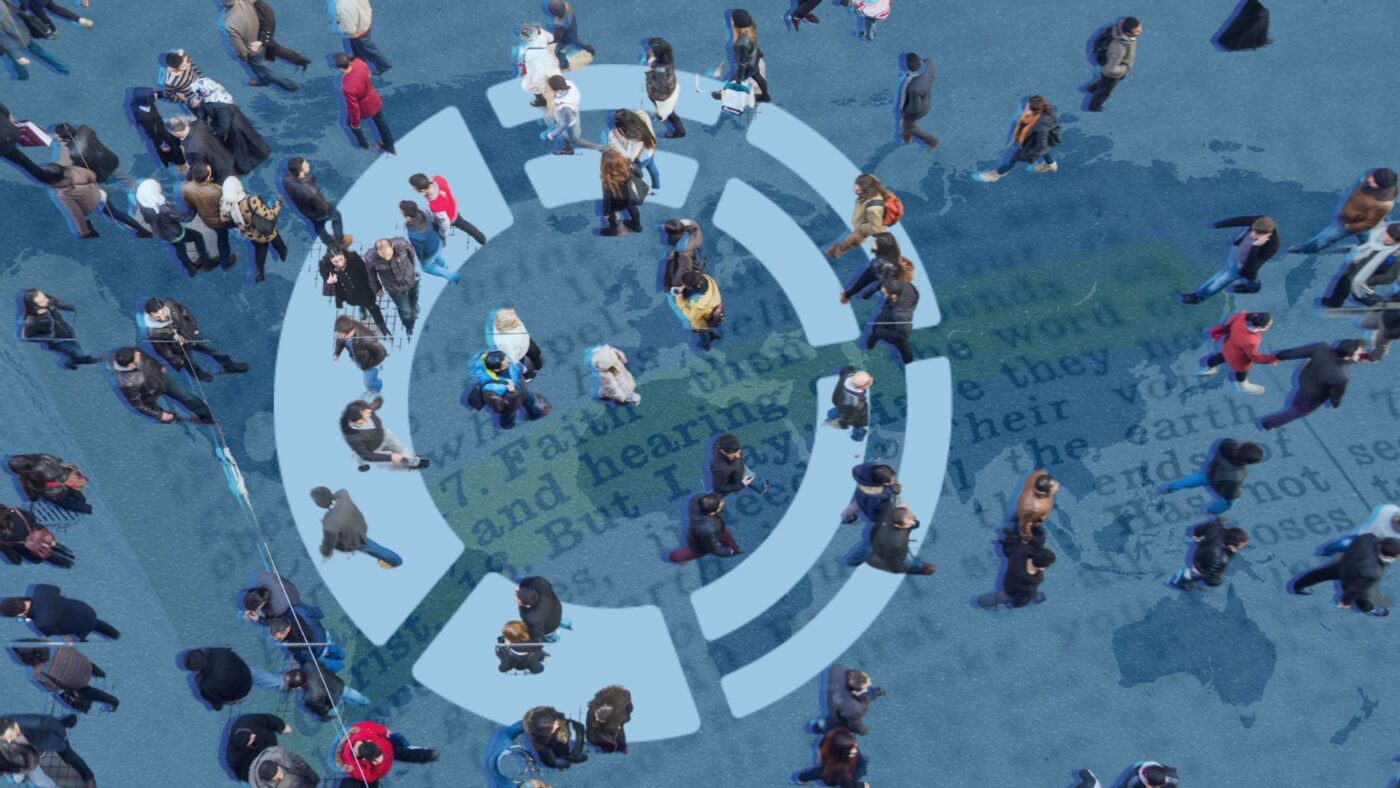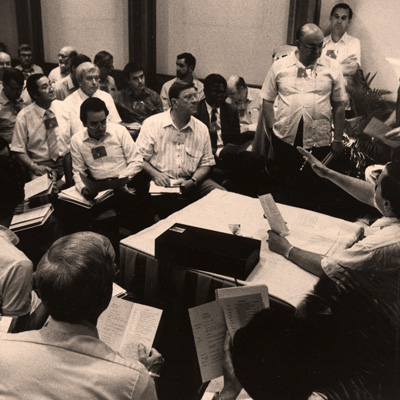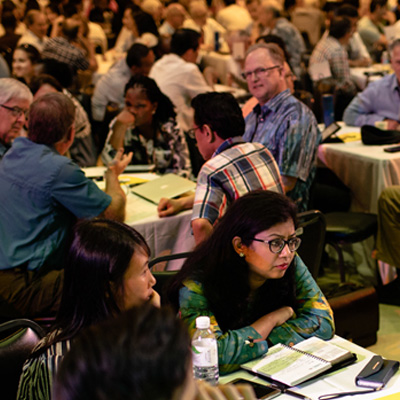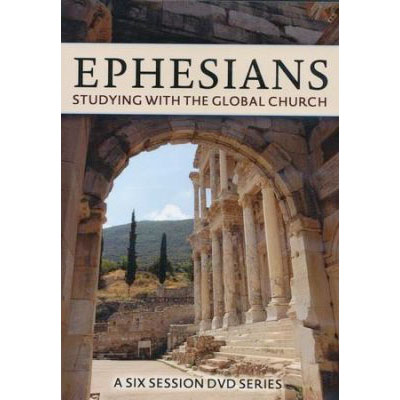Scripture Engagement in a Digital Age
Scripture Engagement in the Twenty-First Century
The onset of the digital age has radically reshaped how individuals interact with various forms of information, with religious texts, such as the Bible, being no exception.1 This transition introduces both opportunities and hurdles in accomplishing the Great Commission (Matt 28:19–20), which encompasses disseminating the gospel and encouraging worldwide engagement with Scripture.
The profound impact of engaging with God’s Word is undebatable. Research confirms that active participation in the Word of God cultivates prosperity in every facet of individuals’ daily lives.2 This transformative journey has always been at the heart of the local church’s mission. From the early church era to the present day, pastors and leaders have been bestowed with the singular capability to guide believers in better understanding and connecting with God’s Word at all life stages. This guidance is often offered through systematic preaching, teaching, and discipleship, facilitating communities’ engagement with God through the Bible.
The onset of the digital age has radically reshaped how individuals interact with various forms of information, with religious texts, such as the Bible, being no exception.
Although these endeavors are both significant and influential, many church leaders perceive a lack of preparedness to lead their communities beyond their current spiritual state. This sentiment rings particularly true as societies progressively digitize, and as in some regions churches experience a decrease in attendance. Churches of all sizes find themselves vying for the attention of individuals whose perceptions are shaped by global people and networks. In some instances, the church’s Scripture engagement has lagged behind the digital knowledge and information wave, creating hurdles in disciple-making for successive generations.
This article analyzes how churches and parachurch organizations can collaboratively ensure that Scripture engagement remains robust within congregations and faith communities. Furthermore, it will evaluate the forthcoming challenges we must be equipped for and offer practical measures to jointly further God’s kingdom. We will scrutinize the contemporary state of Scripture engagement in the digital age, investigate the role of technology in Bible translation, and pinpoint key issues that the global church must tackle to exploit digital technology’s capabilities fully.
Translation in the Digital Age
As one of the most translated works in history, the Bible is accessible to many people worldwide. Promoting Scripture engagement, the interaction between individuals and the biblical text, heavily relies on Bible translation. This process involves converting the biblical text from its original languages—Hebrew, Aramaic, and Greek—into other languages to improve accessibility for diverse cultures and linguistic backgrounds. The lack of translations would render most of the global population unable to engage with the Bible in their native languages.3 Access to the Bible in a person’s mother tongue fosters a deeper understanding, personal connection, and significant impact on the person’s spiritual journey. The transformation observed is attributable more to the Bible in local languages rather than to a foreign language that is locally in use.4
Bible translations’ quality, accuracy, and readability significantly impact Scripture engagement. Translations that accurately capture the meaning and intention of the original text pave the way for a deeper understanding and personal connection to the Scripture. Moreover, translations mindful of the target audience’s linguistic and cultural context contribute to a more relevant and meaningful engagement with the Bible.5 Thus, having translations in various languages promotes inclusive and diverse Scripture engagement globally.
The digital age has significantly contributed to Bible translation and Scripture engagement.
The digital age has significantly contributed to Bible translation and Scripture engagement. Digital technology has expedited translation through translation software, online collaboration tools, and crowd-sourced translation projects. These advancements have promoted the advancement of technology and efficient distribution of Bible translations, reached previously unreachable language groups, and facilitated Scripture engagement on a global scale. Incorporating technology into Bible translation efforts has positively impacted Scripture engagement, enabling more people to engage with the Bible in a language they comprehend.6 However, many languages still lack a complete Bible translation, and this deficiency highlights the continuous need for translation efforts.
Digital platforms have increased how people can engage with the Bible. Online Bibles, mobile apps, and social media platforms provide diverse avenues to read, study, and share Scripture, amplifying Bible translations’ overall reach and impact.7 Miniaturized libraries in the form of mobile apps have transformed access to religious resources.8 Reports on the ‘State of the Bible’ (SOTB) conducted by institutions like the American Bible Society (ABS) and the United Bible Societies (UBS) offer insights into how individuals interact with the Bible and trends in Bible reading.9 These reports reveal that digital tools, including Bible apps and online platforms, have globally increased Scripture accessibility.10

Key Issues for the Global Church
The advent of the digital age has expanded the realm of Scripture engagement, presenting opportunities as well as challenges for the global church. Remarkable opportunities, such as increased access and personalization, have emerged. Digital platforms enable believers to engage with Scripture at their own pace, tailoring their experiences to personal needs. These platforms have also facilitated the formation of global virtual communities, linking believers worldwide to share faith experiences, while digital advancements expedite Bible translation and distribution, augmenting Scripture engagement across diverse language groups.
Technological advancements have democratized access to the Bible and other religious texts, fueling deeper faith connections, while simultaneously creating hurdles that must be overcome. The global church is presented with several vital issues that need addressing in this digital age.
The Digital Divide
The digital divide and accessibility are among the first of these issues. Although digital tools have increases accessibility to scriptures, the disparities in the accessibility to these digital tools poses a significant challenge, as access to technology and digital literacy levels fluctuate across various regions and demographic groups.11 The church must address this divide to guarantee that every individual, regardless of geographical location or socioeconomic status, can access digital tools essential for engaging with Scripture.12 As of 2023, 55 percent of households globally have an internet connection, but only 20 percent are in the poorest countries.13 Addressing this issue may require investment in digital infrastructure, advocacy for digital literacy, and development of cost-effective digital solutions.
Cultural Relevance
A second issue revolves around cultural sensitivity and relevance. Digital tools and resources must resonate with local contexts and cultures to foster a more profound engagement with Scripture.14 Maintaining cultural sensitivity and relevance will likely require collaboration among linguists, Bible translators, and local communities to create digital resources that are culturally appropriate. Ensuring cultural relevance through culturally sensitive digital resources can deepen Scripture engagement.
Misinformation
Third, the observation that the sheer volume of online information may precipitate superficial Scripture engagement must be considered. Furthermore, the rapid spread of misinterpretation of religious texts and online misinformation emphasizes the need for accurate digital resources and literacy promotion. Social media and online communities have revolutionized how people engage with Scripture via virtual communities that cross geographical borders. Yet these virtual communities can rapidly propagate misinformation and misinterpretation. Therefore, it is incumbent upon the global church to harness these platforms effectively to promote Scripture engagement, while simultaneously addressing the potential problem of information disorder.15
Countering misinformation necessitates the creation of accurate digital resources and the fostering of digital literacy. The global church must provide strategies and tools that foster genuine spiritual growth, even in the face of an overwhelming abundance of information.
Artificial Intelligence
The fourth issue is the ethical dimension of utilizing artificial intelligence (AI) in Bible translation.16 The increasing prevalence of AI-driven applications in Scripture engagement and Bible translation necessitates careful consideration of ethical issues, which could include biases inherent in AI algorithms and the potential implications of AI-generated translations. The increasing role of AI in Scripture engagement necessitates transparency and accountability to avoid potential biases. Developing guidelines and promoting education around the ethical use of AI technologies in Scripture engagement is paramount. However, this should coincide with fostering trust between the church and technologists, ensuring the productive use of time in developing guidelines, and providing Scripture access.
Partnership and Collaboration
Finally, partnership and collaboration in the digital age are critical. A cooperative approach involving religious organizations, tech companies, and educational institutions will facilitate the full potential of digital technology in Scripture engagement. Through collaboration, these entities can share best practices, spark innovation, and develop advanced digital tools and resources for a more meaningful engagement with Scripture. The church has a leadership role in fostering cross-sector collaboration that creates a more interconnected and inclusive digital ecosystem for studying and disseminating sacred texts.
By addressing these challenges, the global church can navigate the digital age, ensuring that Scripture engagement remains both accessible and transformative, thereby fulfilling the Great Commission in the twenty-first century and beyond.

Envisioning the Future
Looking toward the future of Scripture engagement between today and 2050, one must anticipate the implications of emerging technologies and societal trends. How the global church adapts will determine the accessibility and level of engagement with sacred texts.
Church-Centric Bible Translation (CCBT) is a unique model that emphasizes the church’s involvement in the Bible translation process. AI-powered tools and AI-driven translation can aid in accelerating the Bible translation for endangered and minority languages. Involving the local church, Bible translation and engagement will be joined to create a new paradigm where digital tools and AI can aid in understanding cultural nuances, theological concepts, and literary styles, which necessitates human judgment and expertise. Therefore, the human element, especially the church’s role in CCBT, remains crucial to ensure the accuracy and spiritual integrity of the translation. CCBT can indirectly contribute to bridging the digital divide by fostering literacy and providing access to spiritual resources in the local language.
With some languages increasingly endangered, there is a mounting need for language preservation and minority language Bible translation. Collaborative initiatives between linguists, Bible translators, and local communities, assisted by advancements in translation technology, will be essential.
The interplay of technological innovation, societal trends, and the global church’s adaptability will shape the future of Scripture engagement.
Furthermore, AI could significantly enhance personalized learning, with AI-driven applications providing customized Bible study materials based on user habits, comprehension levels, and interests. Additionally, Augmented and Virtual Reality (AR and VR) technologies are set to offer immersive Scripture engagement experiences, from visualizing biblical events to participating in virtual faith gatherings.17 Ethical considerations surrounding emerging technologies, such as AI, AR, and VR, also demand careful thought, particularly regarding privacy, data security, and the authenticity of biblical text.
As global connectivity grows, interfaith dialogue becomes more significant. Digital platforms can encourage conversations between faiths, promoting mutual respect and nuanced understanding. Moreover, balancing digital and physical religious communities is key to maintaining social and spiritual richness in one’s faith life.
The interplay of technological innovation, societal trends, and the global church’s adaptability will shape the future of Scripture engagement. By proactively addressing challenges in this digital age, the global church can forge a globally interconnected, inclusive, and engaging future for believers, upholding the Great Commission into the twenty-first century and beyond.
As we look toward the future of Scripture engagement, we must consider the potential impact of emerging technologies and trends in the coming decades. By anticipating these developments, the global church can adapt and prepare for the opportunities and challenges ahead, ensuring that the sacred texts remain accessible and engaging for believers worldwide. The following are some key areas to watch as we envision the future of Scripture engagement from today to 2050.
Strategic Guidelines in the Digital Age
To fully harness the benefits of the digital era and address the concomitant challenges, the global church must implement strategic initiatives and well-directed investments. The following guidelines provide a framework for enhancing Scripture engagement in the digital era.
Invest in Infrastructure and Training
Investments in digital infrastructure and capacity-building programs, especially in developing nations, are integral to providing fair access to digital resources and equipping individuals with the necessary competencies to engage efficiently with Scripture.18 Such steps can benefit the global church’s mission by democratizing Scripture engagement, facilitating personal and community spiritual growth.
Formulate Ethical AI Protocols
Collaborative engagement with technology companies to devise protocols for the ethical application of AI in Scripture engagement is critical. These protocols should tackle matters like algorithmic bias, data confidentiality, and potential implications of AI-generated translations. The benefit of such measures is a more trustworthy, fair, and secure digital religious space that fosters confidence and inclusivity among believers.
Foster Collaboration between AI and Humans
Human wisdom and AI systems should be used collaboratively, leveraging the unique strengths of each. The concept of ‘cooperative AI’, in which AI technologies enhance human capabilities rather than replacing them, leads to mutually beneficial outcomes.19
Encourage Cross-Sector Partnership
Promoting cooperation amongst churches, parachurches, technology enterprises, and educational bodies can foster innovation. Such collaboration creates a holistic digital ecosystem for studying and disseminating Scripture, which benefits the community by providing enriched and diverse faith-based learning resources.
Develop Culturally Inclusive Resources
Coordinating closely with local communities to generate culturally congruent digital resources can catalyze a more profound engagement with Scripture.20 The benefits of this approach are twofold: it not only enhances individual connections with faith traditions, but also strengthens community bonds and respect for cultural diversity.
Elevate Digital Literacy
Investment in training programs that enhance digital literacy is key. These initiatives can empower believers to distinguish credible sources of information and navigate the digital landscape more effectively. The benefit here is the cultivation of a digitally savvy faith community equipped to handle the influx of digital information responsibly and confidently.
Embrace Church-Centric Bible Translation (CCBT)
Advocating for the adoption of CCBT can guarantee Scripture availability in various local dialects. This approach involves the active participation of local church communities in the translation process, making the translation more responsive to their linguistic and cultural specificities. The integration of AI in this process can expedite translation endeavors, facilitating quicker accessibility of the Bible in more languages. As a result, communities benefit from increased cultural relevance and understanding of Scripture, which ultimately lead to a deeper and more personal faith experience.

Conclusion
As we venture further into the digital age, it introduces myriad unique challenges and opportunities for Scripture engagement and the accomplishment of the Great Commission. Addressing the knowledge gap and embracing the potential of technology is pivotal to crafting a future for Scripture engagement that is both inclusive and impactful on a global scale. The strategies and recommendations in this discourse underscore the need to foster robust collaboration and synergies among religious organizations, tech companies, and educational institutions. This cooperative framework can spur innovation and play a critical role in actualizing the Great Commission in the digital era.
By executing these strategic initiatives, the global church has the potential to lay the groundwork for a genuinely global and interconnected religious community that transcends the boundaries of the twenty-first century and beyond. This ensures that the transformative power of Scripture remains accessible, engaging, and deeply resonant for believers worldwide. In this collaborative spirit, the combined efforts of churches and parachurch organizations can magnify the transformative impact of individuals engaging with God’s Word. Together, we can navigate the digital future, making Scripture a living, breathing testament to faith in every corner of the world.
Endnotes
- Heidi A. Campbell and Stephen Garner, Networked Theology: Negotiating Faith in Digital Culture (Grand Rapids: Baker Academic, 2016), 16-33.
- “State of the Bible 2023,” American Bible Society, https://sotb.research.bible/.
- Eugene Nida, Toward a Science of Translating: With Special Reference to Principles and Procedures Involved in Bible Translating (Brill, 2003), 149.
- Wayne T. Dye, “The Eight Conditions of Scripture Engagement: Social and Cultural Factors Necessary for Vernacular Bible Translation to Achieve Maximum Effect,” International Journal of Frontier Missiology 26, no. 2 (Summer 2009): 89–96.
- George Steiner, After Babel: Aspects of Language and Translation, 3rd ed. (Oxford: Oxford University Press, 1998), 345-348, 379.
- “Scripture and Language Statistics 2020,” Wycliffe Global Alliance, https://www.wycliffe.net/statistics/.
- Heidi Campbell, When Religion Meets New Media (New York: Routledge, 2010), 22-26.
- Campbell and Garner, Networked Theology, 54.
- “State of the Bible 2023.”
- Ibid.
- Emily Vogels, “Some Digital Divides Persist between Rural, Urban and Suburban America,” Pew Research Center, August 19, 2021, https://www.pewresearch.org/short-reads/2021/08/19/some-digital-divides-persist-between-rural-urban-and-suburban-america/.
- Ibid.
- “Digital Divide 2023: Key Insights and Trends,” Gitnux, March 11, 2023, https://blog.gitnux.com/digital-divide-statistics/.
- Andrew F. Walls, Cross-Cultural Process in Christian History: Studies in the Transmission and Appropriation of Faith (New York, Orbis Books: 2007), 258.
- Claire Wardle, “Understanding Information Disorder,” First Draft News, September 22, 2020, https://firstdraftnews.org/long-form-article/understanding-information-disorder/.
- Bernd C. Stahl, “Ethical Issues of AI,” in Artificial Intelligence for a Better Future (Springer, 2021), 35–53, https://doi.org/10.1007/978-3-030-69978-9_4.
- Joshua L. Mann, “Augmented Reality, Virtual Reality, and Religion: Recent Developments and Their Significance,” in Believing in Bits: Digital Media and the Supernatural, eds. Simone Natale and Diana Pasulka (New York: Oxford Academic, 2019), 197-201.
- “World Development Report 2020: Trading for Development in the Age of Global Value Chains,” World Bank, https://www.worldbank.org/en/publication/wdr2020.
- Max Tegmark, Life 3: Being Human in the Age of Artificial Intelligence (New York: Knopf, 2017), [page number].20.Andrew F. Walls, The Missionary Movement in Christian History: Studies in the Transmission of Faith (New York: Orbis Books, 2007), 26-30.







